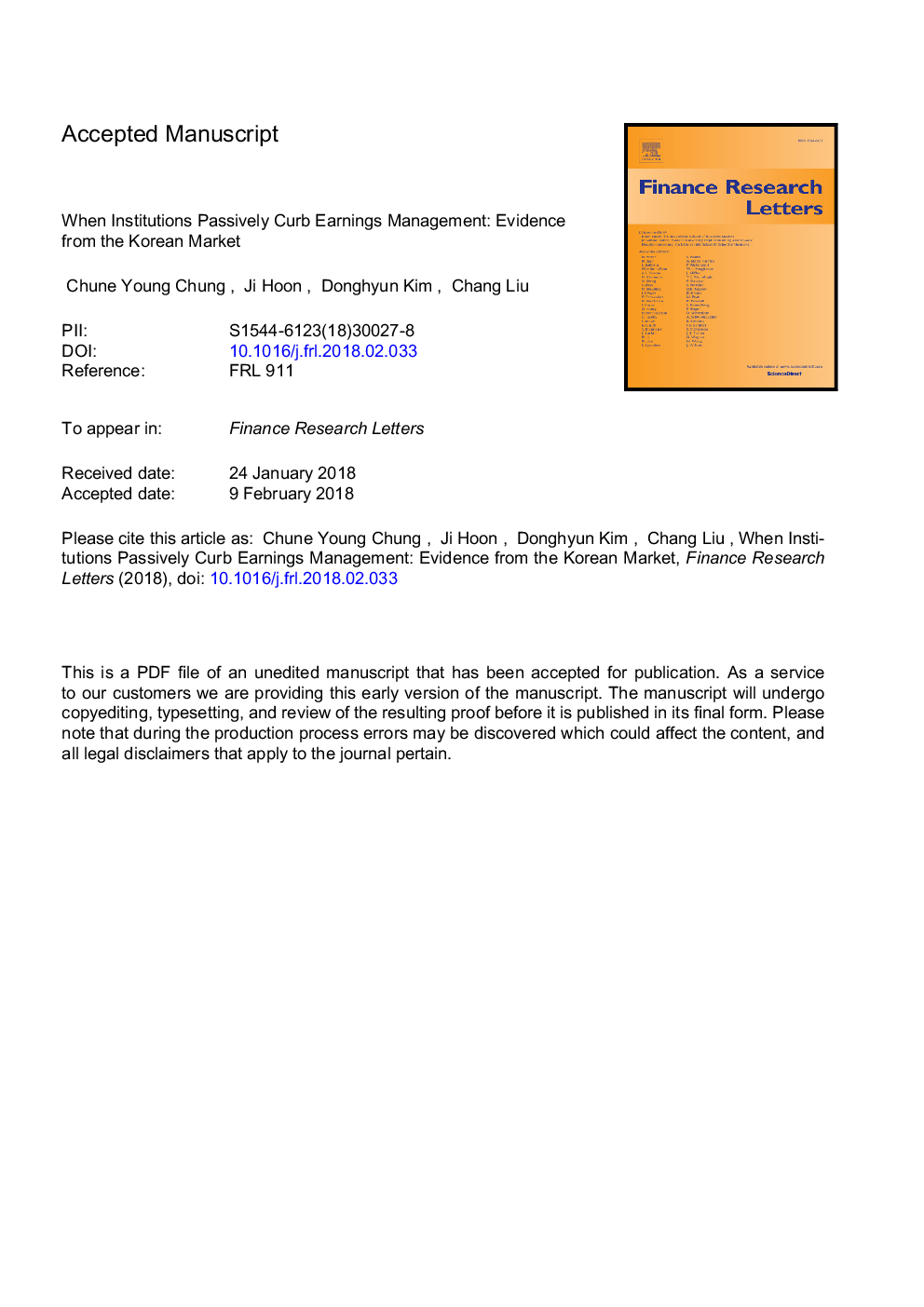| Article ID | Journal | Published Year | Pages | File Type |
|---|---|---|---|---|
| 7352185 | Finance Research Letters | 2018 | 17 Pages |
Abstract
The extant literature largely assumes active institutional monitoring as a main channel through which institutional investors restrain earnings management. However, because the Korean market is dominated by family-oriented chaebols with deficient corporate governance, we believe that passive institutional monitoring is more feasible. Using institutional portfolio turnover as a proxy for the degree of passive monitoring, we assume that institutions with higher turnovers pose a more credible threat of selling-off, thereby inducing managers to act in shareholders' interest. Extending the research supporting the informational advantage of domestic institutions, this study presents empirical evidence that domestic institutions that perform passive monitoring are most effective in curbing earnings management in the Korean market.
Related Topics
Social Sciences and Humanities
Economics, Econometrics and Finance
Economics and Econometrics
Authors
Chune Young Chung, Ji Hoon Hwang, Donghyun Kim, Chang Liu,
